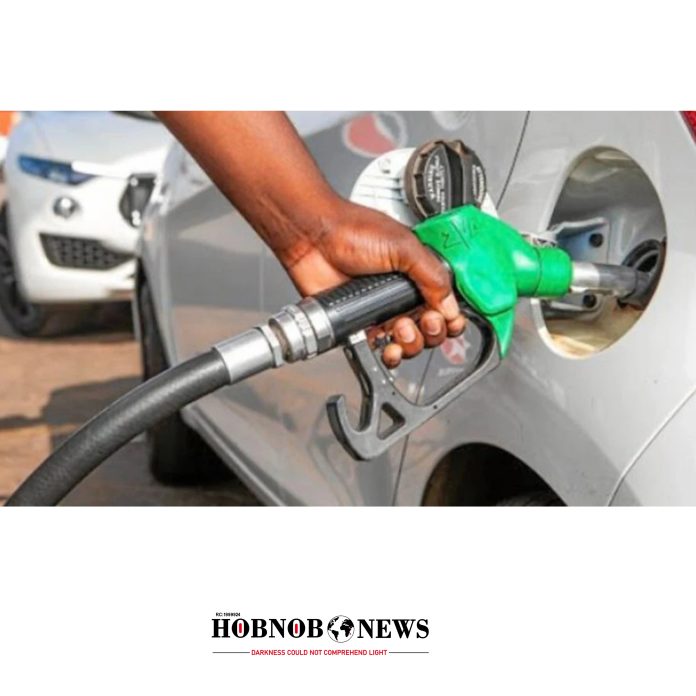The Independent Petroleum Marketers Association of Nigeria (IPMAN) has called for a reduction in petrol prices nationwide. The group urged Dangote Refinery to lower its ex-depot price from N970 per litre, considering that the landing cost of petrol has dropped to N900.28 per litre.
President Bola Tinubu proposed selling crude to local refineries in naira during a Federal Executive Council (FEC) meeting on July 29. The council approved using 450,000 barrels of crude allocated for domestic consumption to supply Nigerian refineries, starting with Dangote Refinery as a pilot program. An initial six-month trial was set, with NNPC supplying 385,000 barrels daily to Dangote Refinery from October 1.
Reports suggest over 23 million barrels of crude have been traded in two months, though details on the transaction remain unclear. A source stated, “There is no information to the contrary, which means the deal is still on.” Efforts to get confirmation from NNPC and Dangote Refinery were unsuccessful.
In October, The PUNCH reported four crude oil cargoes were delivered to Dangote Refinery, with more shipments awaited. Devakumar Edwin, Dangote Industries Vice President, later described the crude supply as “peanuts” compared to the required 650,000 barrels per day. “NNPCL agreed to give a minimum of 385,000 bpd, but they are not even delivering that,” Edwin told Reuters. To meet production capacity, the refinery has resorted to crude imports and plans to export refined products to West African countries.
IPMAN’s National Publicity Officer, Chinedu Ukadike, called on Dangote Refinery to lower its prices to foster competition. He explained that production costs, demand, supply, and foreign exchange rates influence ex-depot prices. Ukadike noted, “The refinery dropped the price from N990 to N980 and then further to N970. This situation is a classic example of the deregulation process.”
He also highlighted the role of the Nigerian Midstream and Downstream Petroleum Regulatory Authority in preventing monopolistic practices and promoting competitive pricing. However, Ukadike mentioned that Dangote Refinery’s crude imports might hinder domestic intervention from significantly lowering prices.
Commenting on public disappointment over the naira-for-crude initiative’s limited impact on petrol prices, Ukadike stated, “No, it is healthy; it will continue to make the sector better… All things being equal, we will reap the benefit of deregulation.”
Meanwhile, the Petroleum Products Retail Outlets Owners Association of Nigeria (PETROAN) President, Billy Gillis-Harry, dismissed the idea of resuming fuel imports despite reduced landing costs. He said, “We are not importing, and we have all made a decision not to bother about importing… Let us see what will happen after our meeting in January if our demands on product offtake will be met.”
NNPCL’s recent invitation to marketers to apply for products from the Port Harcourt depot was described as a positive development.
Civil Societies Blame ‘Cabal’
Civil society organizations (CSOs) have criticized the high petrol prices despite local production. Debo Adeniran, National President of the Coalition Against Corrupt Leaders, attributed the issue to a fuel cartel. He explained, “There is an oil cartel… That is why they manipulate OPEC to regulate prices so that you can’t have so much from the world market.”
Adeniran also criticized local cabals for imposing taxes and regulations that make imported fuel cheaper than locally produced alternatives.
Similarly, Auwal Rafsanjani, Executive Director of the Civil Society Legislative Advocacy Centre, condemned the government’s lack of concern for citizens. He argued that the removal of subsidies, despite refinery operations, has left Nigerians without relief.
Rafsanjani stated, “The government decided to withdraw fuel subsidy without taking into consideration that if you have a public-owned refinery, the citizens should be able to have some relief… This means the government is only interested in generating money without considering the citizens’ affordability.”
He emphasized that natural resources should benefit citizens, adding, “If you have natural resources and a citizen cannot benefit from it, then it is as good as you don’t have.”

